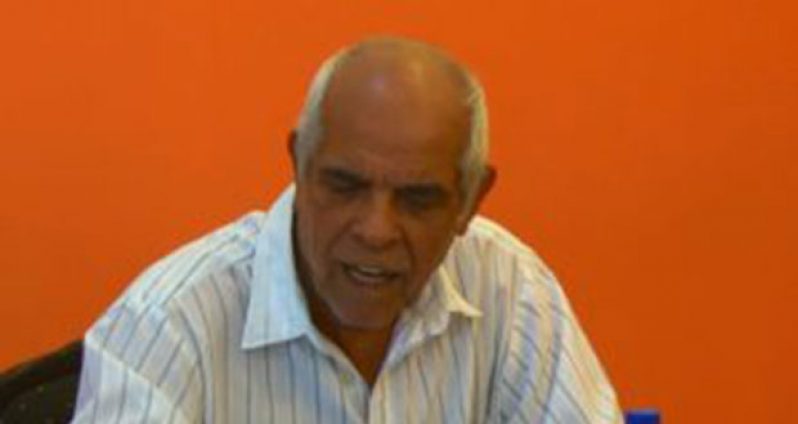THE Guyana Manufacturing Services Association (GMSA) must support government in lobbying the Caribbean Community (CARICOM) if they wish not to pay the agreed Common External Tariff (CET).Russian-trained economist and former finance advisor to the People’s Progressive Party (PPP)-government, Ramon Gaskin, says the current administration is not permitted to determine who pays the CET, so anyone not wanting to observe this CARICOM decision should make their applications to the appropriate entity. Gaskin was at the time responding to statements made by Opposition Leader Bharrat Jagdeo and members of the manufacturing sector who are against government enforcing the CET.
Jagdeo, an economist himself and former finance minister, indicated during a GMSA luncheon last week that his government had taken a deliberate decision not to pay the CARICOM tariff as a benefit to business development in the country. GMSA President Eon Caesar said at the same function that manufacturers are gearing to lobby the A Partnership for National Unity+ Alliance For Change (APNU+AFC) coalition government to continue along this same path.
“But they have to go to CARICOM,” Gaskin charged. “If Jagdeo wants to see changes, then he must go to CARICOM. It is not government’s decision to make and we have to observe the agreements that we sign on to.”
Like Jagdeo, Caesar believes that enforcing the CET will increase production costs and make Guyanese commodities uncompetitive. He said that because of high energy costs, “Guyana’s manufacturing products are already uncompetitive in the international marketplace.” To implement the import fees could completely remove some commodities from the market, he explained.
Jagdeo regarded the non-payment of CET by manufacturers as a concession, stating that, “we cannot take away concessions… and the whole thing about removing the taxes… we will defend it always.” Concerns about paying the specific import tax caused Finance Minister Winston Jordan to outline the dangers entailed with not observing collective agreements such as the CET, while defending that some taxes now being cited by the new government are not new implementations, but rather adherence to what existed, but was not being honoured.
“The last time we failed to enforce the law or treat people equally, it cost us about $1.5B,” Jordan said, referring to the Rudisa case, where a Surinamese beverage company won a court judgment claiming discrimination because of an implemented environmental tax disregarding CARICOM’s Revised Treaty.
In a recent press statement, the Finance Ministry also had to make it clear that there were no increased steel taxes after a public announcement was made by an opposition member. It was stated that based on CET information, the tax for steel commonly imported to the country is double that currently being paid. The government has noted however that relief from the CET for raw material importation requires a move to the Council for Trade and Economic Development (COTED).
Other Caribbean countries such as St Lucia have also expressed the need for a regional review of the CET and plans to lobby CARICOM for such changes. The country’s almost three-month-old government believes that the tariff should be reviewed to give member states “greater flexibility” and, “to determine whether protection should continue to be available to some products manufactured in the region.” CET requires CARICOM members to establish and maintain a common external tariff in respect of all goods which do not qualify for Community treatment in accordance with plans and schedules set out in determinations of the body’s Council of Trade and Economic Development (COTED).



.jpg)









